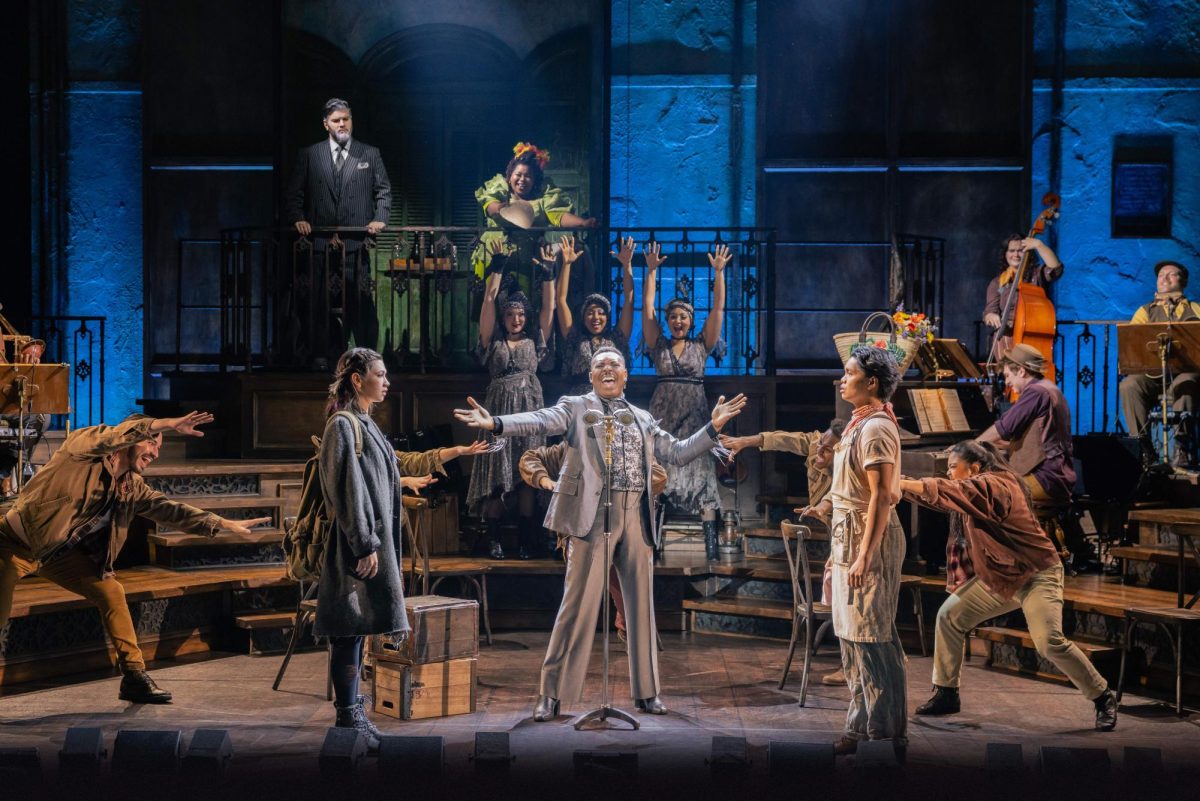Texas A&M’s Judicial Court continues to serve justice for students, by students.
A&M’s Student Government Association, or SGA, has a code of governing documents with bylaws that all individuals in the organization must follow. The Student Senate, Executive Branch and Judicial Court are all parts of the SGA. The court, known by members as “J-court,” keeps SGA running smoothly and gives students the opportunity to learn about judicial procedures and be involved on campus.
Accounting junior and Judicial Court Chief Justice Karissa McIntosh said her role has internal and external aspects in relation to the court.
“Within Judicial Court, I’m the leader for our organization, but I do a lot of work with other branches as well,” McIntosh said. “My biggest position is being the external link of our organization with the rest of SGA. As chief justice, I spend just as much time outside of my organization with other leaders and meetings in addition to our meetings.”
McIntosh said she has been involved with the court for three years and has served as a judicial advocate, vice-chief justice and chief. She said court helped her explore her passions.
“I’ve always known that I’ve wanted to go to law school … [and] I’ve always been involved in debate and criminal justice classes,” McIntosh said. “I was able to pair that with my desire to do things here for my school and for my peers and for our university. I feel like it combines my passion for A&M with my passion for justice.”
Biomedical engineering junior and Associate Justice Daniel Cheng said a challenging part of being a justice is separating personal bias from the role.
“If you want to be a justice in SGA, you have to be prepared to make some hard choices. It’s very likely that you’re going to have friends in other branches,” Cheng said. “They’re going to ask you about cases. Even though you might be socially engaged with them, all your judgements should be grounded in the text.”
Cheng said serving as a justice has taught him to consider the perspectives of others in order to find compromise.
“On the court, there’s going to be quite a bit of ideological diversity,” Cheng said. “Our judicial philosophy can relate to our own personal politics in the real world. You have to keep an open mind, stay respectful, be willing to listen to each other and be willing to work with people who you may disagree with.”
Another member of the court is history freshman Ellie Richter, who serves as a judicial advocate general and advises appellates regarding their cases.
“Essentially, anytime that anyone appeals, I represent them in front of the justices,” Richter said. “I work with them to hear their side of the story, and then I start my process of putting their case together by studying the code and best explaining it to the justices.”
Richter said joining the court is helping her fulfill her future career aspirations.
“I want to do appellate litigation, which is exactly this,” Richter said. “My hope is to one day be a justice, so getting this opportunity to practice and learn argumentation skills and apply them… it’s really cool. The suggestion I made [in a fall case] ended up being written into the election code, so that was rewarding for me.”
The Judicial Court is one of many ways students can be involved with SGA. McIntosh said the court allowed her to create change on campus.
“There’s so many different things you can get involved with here,” McIntosh said. “The one thing I knew as a freshman was that I wanted to be in an organization that was hands-on, that I was doing something and I could see where my actions were making a difference.”
Recently, the Judicial Court has made an effort to better engage with students and make rulings more accessible. Cheng said social media is a great way to connect with students who are considering applying.
“I post every one of our opinion documents on Instagram, so it’s accessible to everyone who wants to read them,” Cheng said. “Aside from the mass emails, we will also have posts on Instagram regarding vacancies. If people are interested in the court, they should definitely follow us on Instagram.”
A look inside A&M Student Government Association’s Judicial Court
January 26, 2021
Photo by File
The Student Government Association is located in the John J. Koldus Building.
0
Donate to The Battalion
$1915
$5000
Contributed
Our Goal
Your donation will support the student journalists of Texas A&M University - College Station. Your contribution will allow us to purchase equipment and cover our annual website hosting costs, in addition to paying freelance staffers for their work, travel costs for coverage and more!
More to Discover










